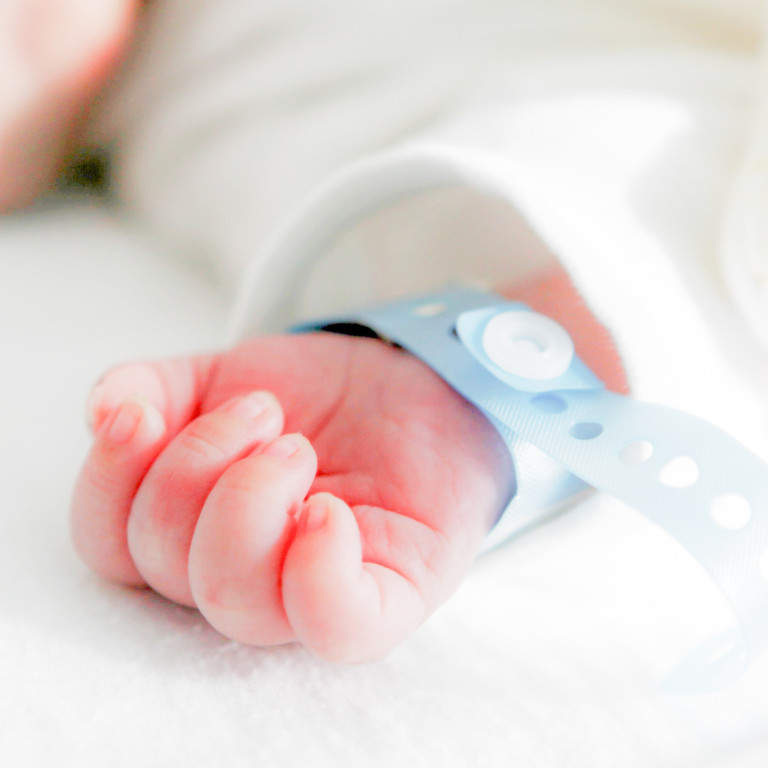We follow the ongoing developments concerning the inadequacy of care at Nottingham University Hospitals and we were saddened to read that the Trust have admitted failings in the care of baby Wynter, who died at 23 minutes old. This resulted in the NHS Trust being fined £800,000 after Nottingham Magistrates’ Court heard how a “catalogue of failings” exposed both Wynter and her mother, Sarah, to “significant risk of harm”.
The Care Quality Commission issued this criminal prosecution, having only done so once before, following the East Kent maternity scandal.
Wynter died from hypoxic ischaemic encephalopathy, which is a loss of oxygen flow to the brain, which could have been prevented had staff delivered her earlier. Sadly, we act for several families whose babies suffer similar injuries, resulting in death or significant disability.
Nottingham Coroner’s Court heard that the maternity unit was “busy” when Sarah arrived, and there was a failure to hand her care over properly. Sarah was then misdiagnosed as being in the latent phase of labour, when there were “clear clinical signs” that she was in established labour, meaning she did not receive the level of care that she needed.
The coroner concluded that there had been opportunities to act earlier which could have saved the baby's life, such as providing one-on-one care and monitoring the baby's condition during labour. For baby Wynter, had that been done, it would have been identified that she was in distress.
The inquest further heard that a doctor assessing the baby the following morning did not pick up on concerns raised by Sarah’s midwives about a possible infection and Wynter’s heart rate.
When Wynter was eventually delivered, she was in a “poor condition” and the umbilical cord was “wrapped tightly around her leg and neck”. We cannot imagine the distress to Wynter’s parents, and attempts were made to resuscitate her but had to be abandoned after 23 minutes. Wynter died in her parents’ arms.
The coroner stated that “systemic issues” contributed to the neglect of Wynter, adding that the unit was so short-staffed, that midwives were looking after several high-risk patients simultaneously. She concluded that this was a case of “clear and obvious” neglect and that baby Wynter’s death could have been avoided if she had been delivered earlier.
Passing judgment, District Judge Grace Leong said:
“The catalogue of failings and errors exposed Mrs. Andrews and her baby to a significant risk of harm which was avoidable, and such errors ultimately resulted in the death of Wynter and post-traumatic stress for Mrs. Andrews and Mr. Andrews."
Following the hearing, Wynter’s parents bravely provided a statement:
"We hope [the fine] sends a clear message to the trust managers that they must hold patient safety in the highest regard. Sadly, we are not the only family harmed by the trust's failings. We feel that this sentence isn't just for Wynter, but it's for all the babies who have gone before and after her."
Last week, the Trust pleaded guilty to two charges, the first related to the failures in Sarah’s care, and the other for the failures to little Wynter.
Anthony May, the Trust’s chief executive, said that he was "truly sorry for the pain and grief" caused, adding: "We let them down at what should have been a joyous time in their lives."
Sadly, maternity units at Nottingham University Hospitals have been rated inadequate since 2020 and are the subject of a wider review by senior midwife Donna Ockenden, who published a report into the biggest NHS maternity scandal in Shropshire last year.
Ms Ockenden said the suffering of Wynter's family should be "at the forefront of everyone's mind" and we echo her words.
We understand that more than 900 families and 400 staff are contributing to the review about concerns over maternity care at the trust, and Donna Ockenden urged more to contact the investigation.
She explained:
"The more staff that come forward, the more families we can include, the more robust our findings will be and the more relevant our findings will be, and the stronger our findings will be."
Medical Negligence specialist Helena Campbell comments:
“It is with such sadness that I have been following the Ockenden inquiry and maternity scandals, with so many avoidable injuries to babies across the UK. My deepest sympathies go to little Wynter and her parents, and all the other families affected by poor maternity care.
Sadly, we act for many families where their babies have either died or been left with life-changing avoidable injuries. Nothing will bring the family the baby that they were expecting, but supporting families after such tragedy provides them with answers and allows us to put into place the proper care and accommodation needs, aids and equipment, and full support for the families.
I hope that all Trusts across England learn from these investigations, and that further loss and serious injury can be prevented to save this unnecessary pain for families like the Andrews.”
How can we help
Our specialist medical negligence team has considerable experience in handling medical negligence claims involving injuries to babies, including baby loss, hypoxic events leading to brain injuries such as cerebral palsy, group B strep causing significant disability, and Erb’s palsy injuries as well as birth injuries to mothers.
If you think you may have been affected by this maternity scandal, or if you think you have received substandard maternity care resulting in injuries to you or your baby, contact us today and we will do all we can to help to provide the answers you need.





